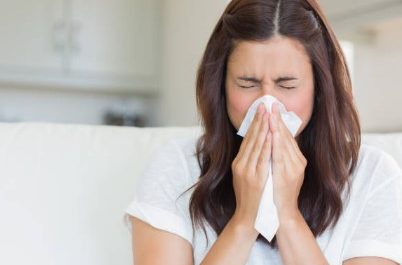There are several non-drowsy over-the-counter medications available that can help alleviate a runny nose. These medications typically contain antihistamines or decongestants. Here are some examples:
Loratadine (Claritin)
Loratadine is an antihistamine that can provide relief from allergy symptoms, including a runny nose. It is known for causing less drowsiness compared to older-generation antihistamines.
Cetirizine (Zyrtec)
Cetirizine is another antihistamine that can effectively reduce symptoms of allergic rhinitis, including a runny nose. It is generally non-drowsy, although some individuals may experience mild drowsiness.
Fexofenadine (Allegra)
Fexofenadine is a non-drowsy antihistamine that can provide relief from allergy symptoms, including a runny nose. It is known for its long-lasting effects.
Pseudoephedrine (Sudafed)
Pseudoephedrine is a decongestant that can help relieve nasal congestion and reduce a runny nose. It is available over-the-counter but may be kept behind the pharmacy counter due to restrictions on its sale.
Phenylephrine
Phenylephrine is another decongestant commonly used to relieve nasal congestion and associated symptoms like a runny nose. It is available in various over-the-counter nasal sprays or oral formulations.
It’s important to read and follow the instructions on the packaging and consult with a pharmacist or healthcare professional if you have any underlying medical conditions or are taking other medications. They can provide guidance on the most suitable non-drowsy medication for your specific needs.
A runny nose, also known as rhinorrhea, can have various causes. Some common factors that can lead to a runny nose include:
Common cold
The most common cause of a runny nose is a viral infection like the common cold. Cold viruses can irritate the lining of the nasal passages, leading to increased mucus production and a runny nose.
Allergies
Allergic rhinitis, also known as hay fever, can cause a runny nose. It occurs when the immune system reacts to allergens such as pollen, dust mites, pet dander, or certain foods, triggering symptoms including a runny or stuffy nose.
Sinusitis
Sinusitis is an inflammation of the sinus cavities, usually caused by a bacterial or viral infection. It can lead to a runny nose along with other symptoms such as facial pain, congestion, and postnasal drip.
Nasal irritants
Exposure to irritants like smoke, strong odors, chemicals, or pollutants can cause the nasal passages to produce excess mucus, resulting in a runny nose.
Changes in temperature or humidity
Sudden changes in temperature or humidity can cause the nasal passages to become irritated and lead to a runny nose.
Spicy foods
Consuming spicy foods can trigger a runny nose in some individuals due to the release of chemicals that cause nasal congestion and increased mucus production.
Physical exertion
Intense physical activity or exercise can cause a runny nose in some people. This is known as exercise-induced rhinitis and is believed to be caused by increased blood flow to the nasal tissues.
It’s important to note that the underlying cause of a runny nose can vary, and a proper diagnosis by a healthcare professional may be needed to determine the exact cause and provide appropriate treatment.
Home remedy For runny nose
There are several home remedies that can help alleviate a runny nose. While they may not cure the underlying cause, these remedies can provide temporary relief from symptoms. Here are some home remedies you can try:
Saline nasal irrigation
Using a saline solution to rinse your nasal passages can help flush out mucus and relieve nasal congestion. You can purchase a saline nasal spray from a pharmacy or make your own solution by dissolving 1/4 teaspoon of salt in 8 ounces of warm distilled or boiled water.
Steam inhalation
Inhaling steam can help moisturize the nasal passages, loosen mucus, and provide temporary relief from a runny nose. Lean over a bowl of hot water and cover your head with a towel to trap the steam. Breathe deeply for a few minutes.
Stay hydrated
Drinking plenty of fluids, such as water, herbal tea, or warm soups, can help thin out mucus and keep the nasal passages hydrated.
Warm compress
Applying a warm compress over your sinuses and nose can help relieve congestion and reduce a runny nose. Soak a clean washcloth in warm water, wring out the excess, and place it over your nose and sinuses for a few minutes.
Elevate your head
Sleeping with your head slightly elevated can help reduce nasal congestion and prevent mucus from accumulating in the nasal passages. Use an extra pillow or prop up the head of your bed.
Spicy foods
Eating spicy foods, such as chili peppers or horseradish, can help clear nasal congestion and promote mucus drainage. However, this may not be suitable for everyone, so use caution and consult with a healthcare professional if you have any underlying conditions.
Rest and relaxation
Getting plenty of rest and taking it easy can support your immune system and aid in your body’s recovery from a runny nose.
Remember, these home remedies may provide temporary relief, but if your symptoms persist, worsen, or are accompanied by other concerning symptoms, it’s important to consult with a healthcare professional for proper evaluation and treatment.


